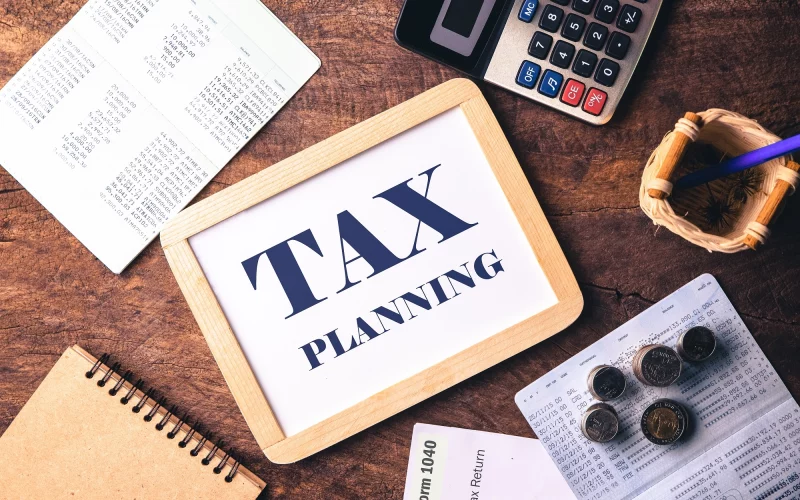Introduction
In today’s complex financial landscape, mastering tax planning is essential for individuals and businesses alike. Tax planning isn’t merely about compliance; it’s a strategic approach to managing finances that can unlock significant opportunities for growth and wealth accumulation. This article will delve into the intricacies of tax planning, exploring its importance, strategies, and the potential benefits it offers.
Define Tax Planning
Tax planning involves analyzing a financial situation or plan from a tax perspective to ensure tax efficiency. It aims to minimize tax liability through the best use of available deductions, exemptions, and strategies.

Relevance and Importance
Effective tax planning can result in substantial savings, allowing individuals and businesses to retain more of their hard-earned money. It also facilitates better financial decision-making by providing clarity on the tax implications of various actions.
Types and Categories
Tax planning encompasses various strategies tailored to different entities and situations. Understanding these types and categories is crucial for developing a comprehensive tax plan.
Individual Tax Planning
This involves optimizing tax outcomes for individuals, considering factors such as income sources, deductions, credits, and investments.
Retirement Planning
Strategically contributing to retirement accounts like 401(k)s and IRAs can lower taxable income while saving for the future.
Investment Tax Planning
Choosing tax-efficient investment vehicles and timing capital gains and losses can minimize tax obligations on investment returns.
Business Tax Planning
Businesses employ tax planning strategies to maximize after-tax profits and ensure compliance with tax laws.
Entity Selection
Selecting the appropriate business entity, such as a sole proprietorship, partnership, corporation, or LLC, can significantly impact tax liability and operational flexibility.
Expense Management
Careful management of business expenses, including deductions for salaries, equipment, and overhead, can reduce taxable income.
Symptoms and Signs
Recognizing the need for tax planning is the first step toward optimizing financial outcomes. Several symptoms and signs indicate when individuals or businesses can benefit from proactive tax planning strategies.
High Tax Liability
Experiencing significant tax bills or consistently paying a high percentage of income in taxes may signal the need for tax planning to identify potential savings opportunities.
Complex Financial Situations
Complex financial scenarios, such as multiple income sources, investments, or business ownership, often benefit from customized tax planning to navigate intricate tax laws and regulations effectively.
Causes and Risk Factors
Various factors contribute to the need for tax planning, ranging from changes in tax laws to individual circumstances. Understanding these causes and risk factors helps anticipate and address tax-related challenges.
Legislative Changes
Frequent changes in tax legislation at the local, state, and federal levels can create uncertainty and necessitate adjustments to tax planning strategies.
Life Events
Life events like marriage, divorce, childbirth, or retirement can significantly impact tax obligations, requiring proactive planning to optimize financial outcomes.
Diagnosis and Tests
Evaluating current financial circumstances and tax liabilities is akin to diagnosing a patient’s health condition. Conducting thorough assessments and utilizing appropriate tools are essential steps in the tax planning process.
Financial Review
Reviewing income, expenses, investments, and other financial metrics provides insight into potential tax-saving opportunities and areas for optimization.
Tax Projections
Estimating tax liabilities for the current and future periods helps identify strategies to minimize taxes and plan for any anticipated changes.
Treatment Options
Once diagnosed, implementing effective tax planning strategies becomes paramount. A range of treatment options exists to mitigate tax liabilities and maximize savings.
Tax-Efficient Investments
Investing in tax-advantaged accounts or assets, such as municipal bonds or retirement plans, can yield significant tax savings over time.
Strategic Timing
Timing income, deductions, and other financial transactions to maximize tax benefits and minimize liabilities is a fundamental aspect of tax planning.

Preventive Measures
Prevention is often the best medicine, and proactive tax planning can prevent unnecessary tax burdens and financial inefficiencies.
Regular Review
Regularly reviewing and adjusting tax planning strategies ensures alignment with changing circumstances and tax laws, maximizing potential savings.
Compliance Adherence
Staying compliant with tax laws and regulations minimizes the risk of penalties and audits, safeguarding financial stability and reputation.
Personal Stories or Case Studies
Real-life examples illustrate the tangible benefits of tax planning and provide valuable insights into its effectiveness.
Jane’s Retirement Strategy
Jane, a diligent saver, utilized tax-advantaged retirement accounts and strategic investment planning to retire comfortably while minimizing tax liabilities.
Joe’s Business Success
Joe, a small business owner, implemented effective tax planning strategies, such as expense management and entity selection, to optimize profitability and growth.
Expert Insights
Insights from tax professionals shed light on best practices and emerging trends in tax planning.
Expert Opinion: “Tax planning is not just about reducing taxes; it’s about maximizing after-tax wealth while ensuring compliance with the law.” – John Smith, CPA.
Conclusion
In conclusion, tax planning is a vital aspect of financial management that offers numerous benefits, including tax savings, wealth accumulation, and better decision-making. By understanding the importance of tax planning, exploring various strategies, and seeking expert guidance when needed, individuals and businesses can unlock financial opportunities and achieve their long-term goals.










